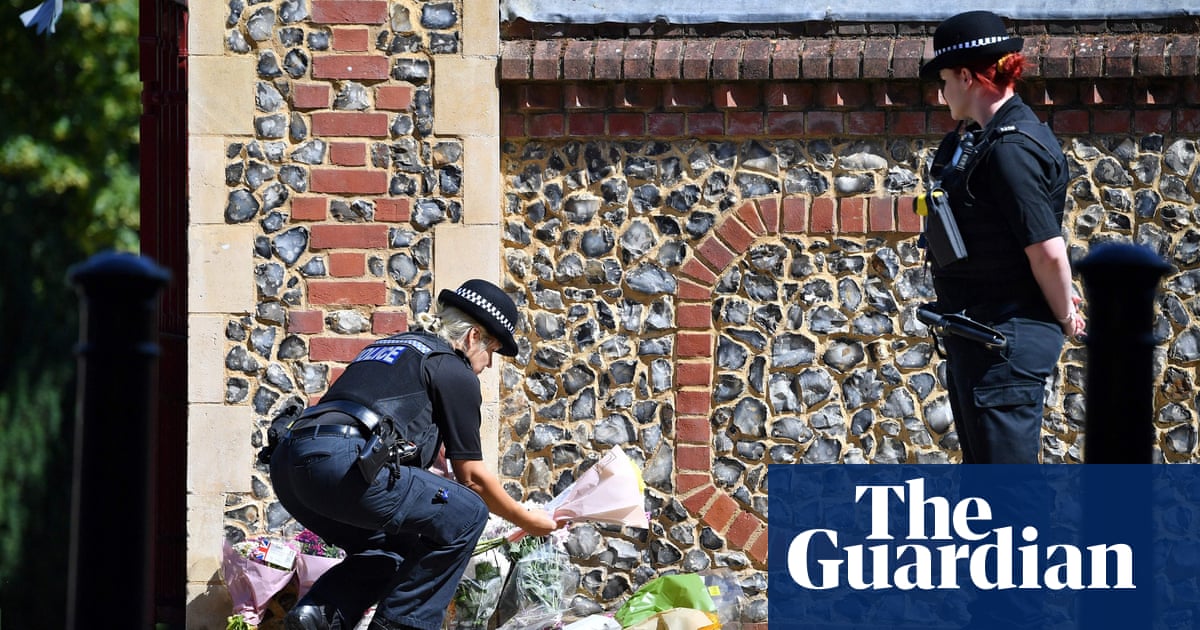
The deaths of three people during a terror attack in Reading were avoidable, an inquest has determined.
A judge coroner sitting at the Old Bailey on Friday said failings in intelligence sharing and in providing psychiatric care contributed to the failure to prevent the attack that took the lives of James Furlong, Dr David Wails and Joseph Ritchie-Bennett in June 2020.
Speaking after the hearing, Gary Furlong – one victim’s father – said they had all been failed by “virtually all state agencies” who dealt with their attacker, Khairi Saadallah.
“Our boys did not stand a chance,” he said. “There were clear warnings of [Saadallah’s] extremist risk and becoming a ‘lone-wolf’ attacker.
“We have been sat in court demoralised, bewildered and disillusioned by the agencies’ failure to effectively communicate, assess the risk and protect the public. It is clear to us that the boys were failed by the agencies who were entrusted to protect them.”
The “failings of the state exposed by this inquest sicken and disgust me”, Wails’s brother Andrew Wails said. “Those who failed in their duties are responsible for David, James and Joe’s deaths. I will never forgive and never forget the pain and suffering inflicted on David and my family, which we have to endure for the rest of our lives.”
The three men were killed as they sat in Forbury Gardens in Reading. Three more people – Stephen Young, Patrick Edwards and Nishit Nisudan – were injured during the attack.
The inquest heard that, while serving a sentence in HMP Bullingdon, Saadallah said he would “stab someone” during an outburst. But this did not form part of an intelligence report until after the terror attack, the judge coroner said.
Saadallah had been referred to the government’s counter-extremism Prevent programme four times by the time he launched the attack. But all four referrals were closed because his prison sentence meant he was no longer in the community, and because of a “widely accepted assessment that any risk he posed was based on his mental health difficulties, as opposed to an adherence to an extremist ideology”, the court was told.
The failure by Prevent to identify and act on the risk Saadallah posed was a “matter that has caused me some real concern”, Adrian Fulford ruled on Friday. Nevertheless, he said he had been told that “significant lessons have been learned”.
Fulford, who referred to the attacker by his initials, KS, during the hearing, also said the deaths “probably would have been avoidable” if the mental health service had given “greater priority to stabilising KS and securing access to long-term psychological therapy”.
He added that, if his “extremist risk had been better analysed”, Saadallah would probably then have been recalled to custody the day before the attacks, meaning they would never have happened.
Fulford listed Saadallah’s convictions, which he said indicated a “deterioration in his behaviour from late 2018”, as he was carrying offensive weapons in public and had “demonstrated a propensity to attack others”.
Staff members in probation, immigration, police and MI5 have all given evidence to the inquest. A counsellor said he “harassed” mental health services to examine the terror attacker in the year before the killings, with his mental state forming a large part of proceedings.
Fulford named several failures by Berkshire healthcare NHS foundation trust community mental health team. One example resulted in Saadallah being caught in a “catch-22 dilemma” – as a result of his mental condition, he abused alcohol or drugs, which rendered him permanently ineligible for treatment. Yet treatment could possibly have helped prevent the attacks, the judge coroner said.
Thames Valley police failed to discover a knife at Saadallah’s home during a welfare check the day before he carried out the attacks because officers were not told he was threatening to harm himself and others, the hearing was told.
But the judge coroner said he accepted that, based on the information available to the officers before the visit, they had “no reasonable ground to arrest KS or consider detaining him”.
Berkshire healthcare NHS foundation trust said it would review the findings and make any improvements “as quickly as possible”. It added that it was trying to improve its “communication and engagement with our partners and the way in which multi-agency working is delivered”.
Tim Metcalfe, assistant chief constable of Thames Valley police, said the force acknowledged the conclusions, adding: “We will of course need time to fully consider and we await the full details of any formal recommendations.”












